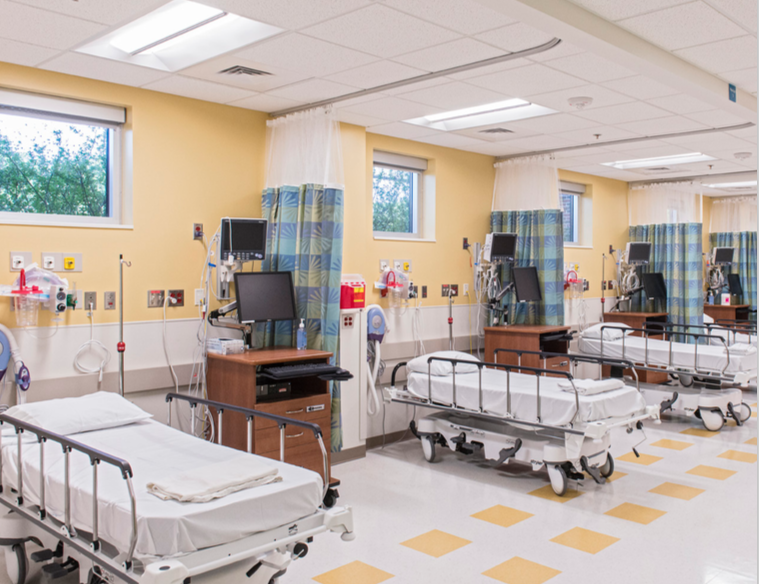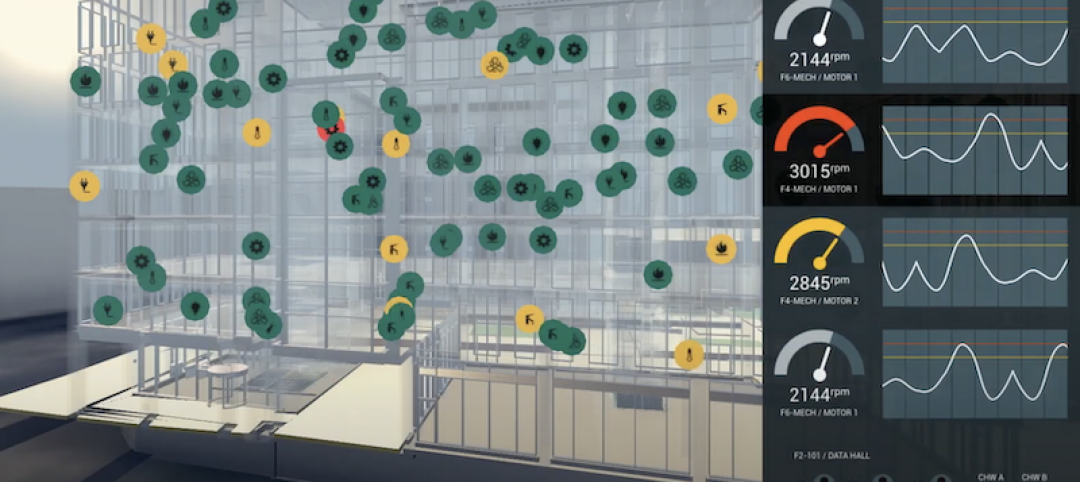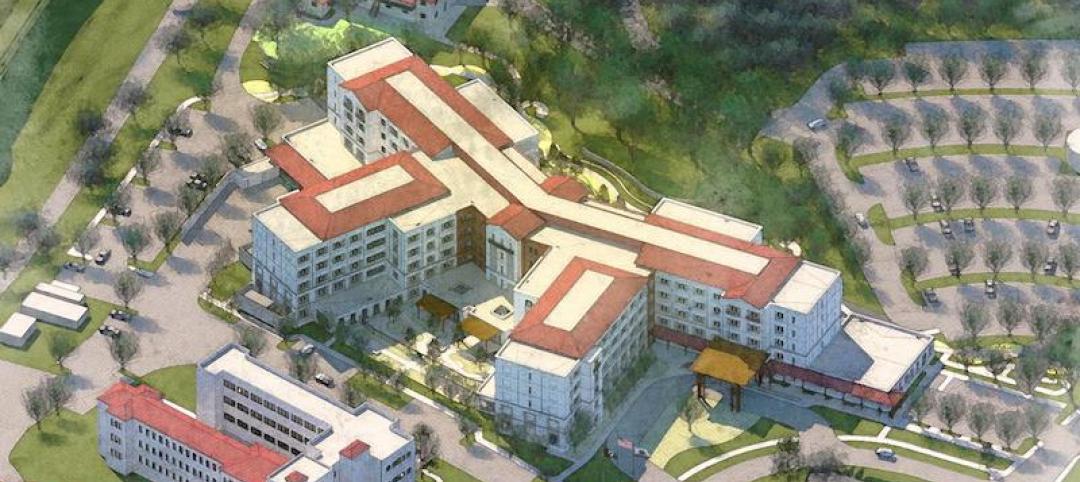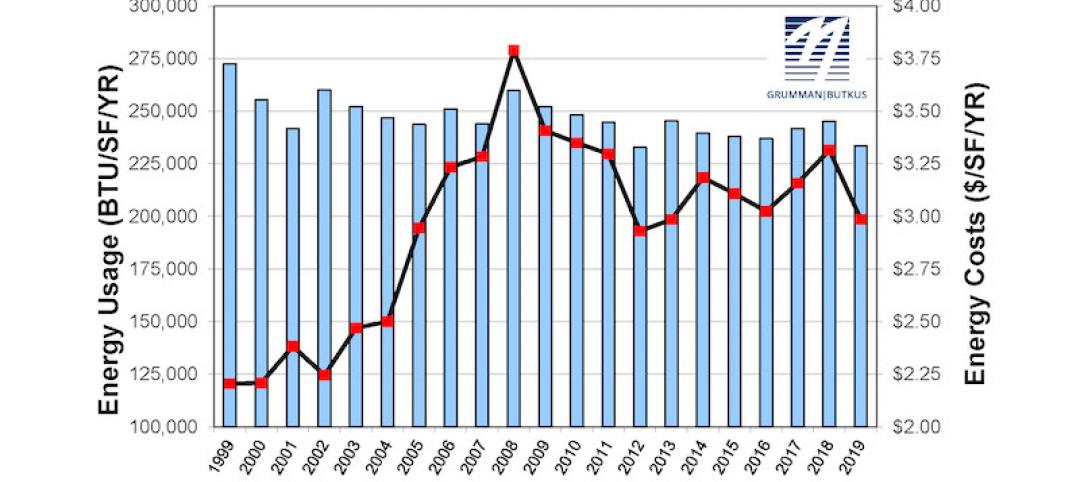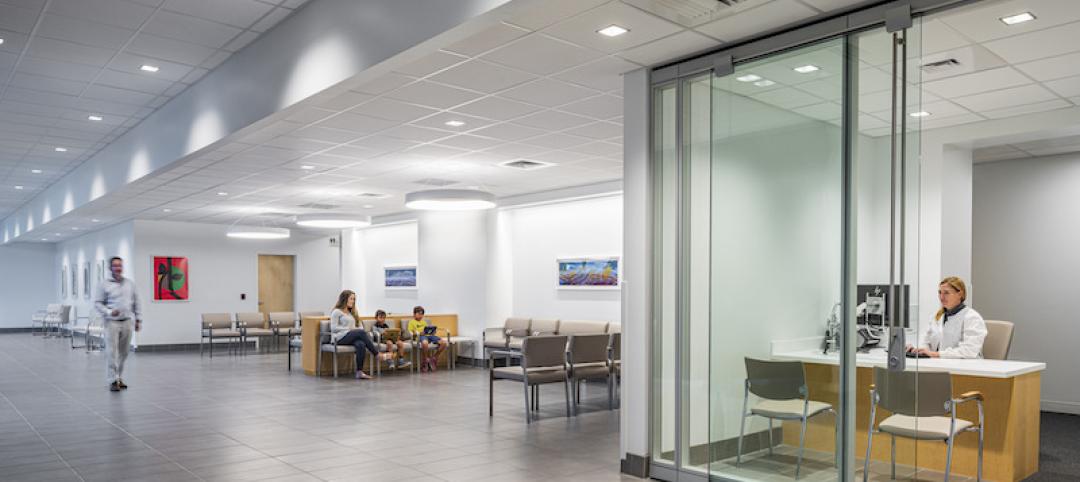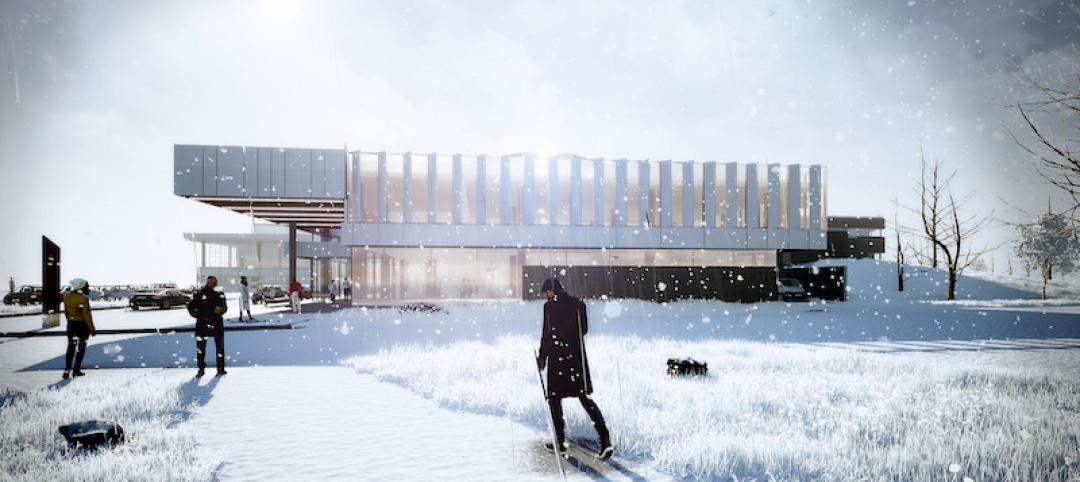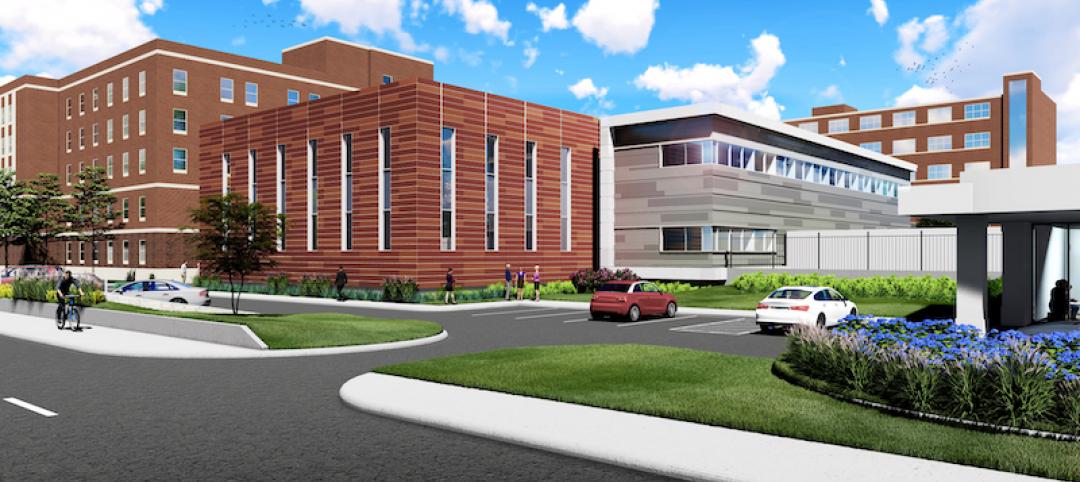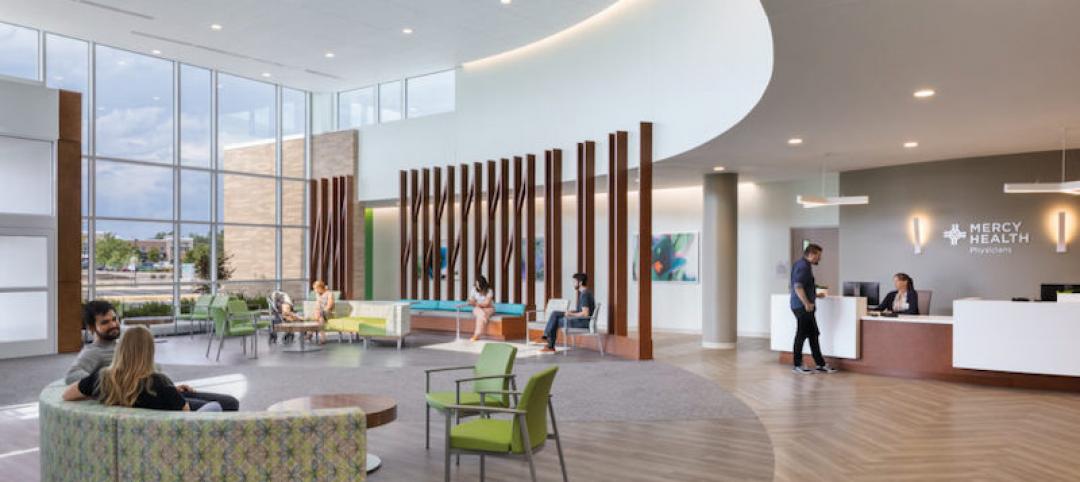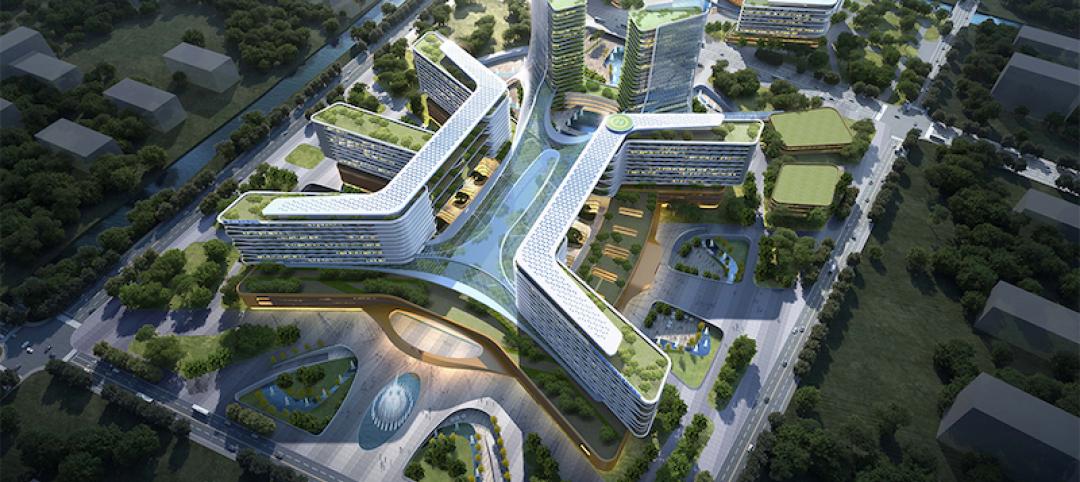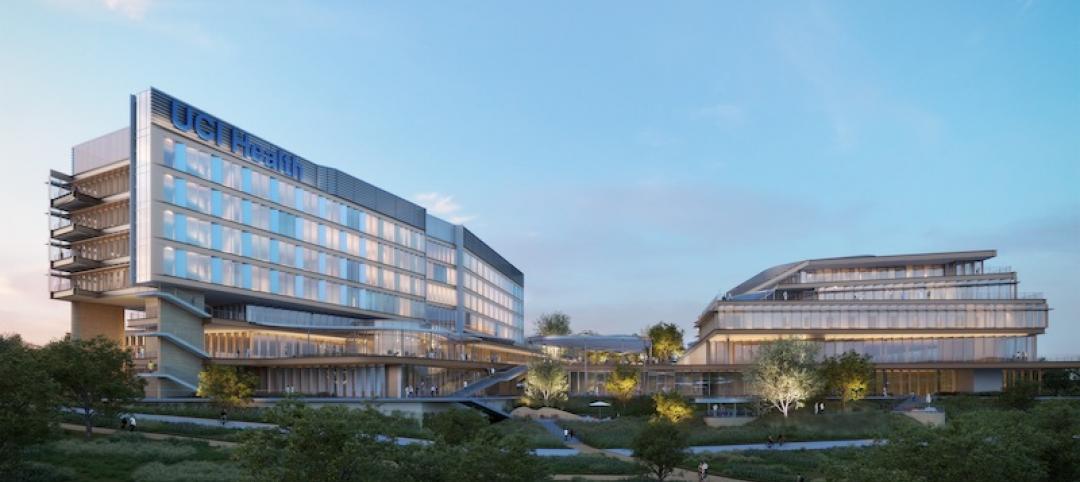Light plays an important role in human health and productivity, and there is no environment where these two factors are more dynamically connected than healthcare facilities. Hospitals are finding that upgrading to a modern LED lighting system can have a significant positive impact on almost every level of hospital function. Although LED lighting usually gets attention as a money-saving, energy-saving strategy—it can reduce lighting energy costs up to 70%—it can also bring measurable improvements to a facility’s performance in terms of patient recovery times, patient experience, medical staff performance, and staff job satisfaction. LED lighting may also contribute to reductions in accidents and errors; an increased sense of security for visitors and staff; and even better cleaning by maintenance staff. Those advantages can, in turn, yield financial benefits that go far beyond the cost of energy.
Today’s healthcare design is driven by several major pressures. Among the changes brought by the Affordable Care Act (ACA) was a link between patient satisfaction and the reimbursement rates that hospitals receive, making patient experience a bottom-line issue. Hospitals are also striving to control their spending through greater efficiency and a drive to get more usage out of limited space.
Surprisingly, better lighting can have impacts in all these areas of concern. Since most hospitals run 24/7, artificial lighting plays a crucial role in day-to-day operations. An LED smart lighting system can provide light that is not only better but also responsive to human needs and behaviors.
One can think of the hospital experience as a series of layers, each experienced by some or all of the stakeholders: patients, caregivers, family members, and non-clinical staff.
A Brighter Welcome
At healthcare facilities, exterior grounds and parking areas are typically what people encounter first. Dark or unevenly lit areas may be dangerous for security and increase the risk of slip/fall accidents. They can make arriving at the hospital stressful—bad for patient health and staff performance and productivity—and deter visitors, potentially impacting patient well-being and experience. Well-lit exteriors increase security, and the sense of security, so good lighting can be a sincere form of welcome.
The same may be said of reception areas, waiting rooms, and the corridors used by visitors and patients. A smart lighting system can adjust illumination levels according to time of day, helping maintain normal day/night body rhythms even in areas that don’t receive any natural light. Good lighting also improves wayfinding, one of the major challenges (and stressors) for hospital visitors and patients.
Light Can Help Healing
Studies over the past two decades have found abundant evidence of the connection between good lighting and patient healing. Other patient benefits may be less obvious. When McLaren Health Care System in Michigan upgraded 11 of its primary hospitals with smart LED lighting systems, they found they could reduce noise levels through control of the lighting. By dimming the lights in patient and visitor areas at certain times in the evening, they signaled that it was time to quiet down and allow patients to rest.
Doctors and nurses may also perform better under better lighting. Studies have shown that dim night-shift conditions make caregiving and medical decision-making more difficult. Since more than half of registered nurses are over the age of 50,[1] when the human eye requires three times as much light as a person aged 25, adequate light is vital for their job performance. Lighting can also affect performance and stress levels in the operating room, and error rates in dispensing medication. At McLaren Port Huron, the hospital’s housekeeping staff reported that with the improved lighting, they could “see what they’re cleaning,” a vital aspect of the fight against in-hospital infections.
Performance Boost
An LED lighting system can even increase usable space. With LED emitters (the “bulb” of an LED fixture) lasting for many years, extra spare bulbs do not have to be stocked to the extent as before, freeing up space for other types of storage. It could also mean drastically reduced maintenance times on fixtures, freeing staff for other tasks.
In healthcare, energy savings is only one of the ROIs of an LED lighting upgrade. Ultimately, the fundamental mission of the enterprise becomes more achievable. Many of the improvements affect bottom-line issues, too, by their impacts on efficiency, patient satisfaction, and job satisfaction.
References
[1] Lighting The Way: A Key To Independence, AARP 2001
Related Stories
Digital Twin | May 24, 2021
Digital twin’s value propositions for the built environment, explained
Ernst & Young’s white paper makes its cases for the technology’s myriad benefits.
Healthcare Facilities | May 20, 2021
California Veteran Home, Skilled Nursing Facility and Memory Care project set for Yountville, Calif.
A team of Rudolph and Sletten and CannonDesign will design and build the facility.
Market Data | May 18, 2021
Grumman|Butkus Associates publishes 2020 edition of Hospital Benchmarking Survey
The report examines electricity, fossil fuel, water/sewer, and carbon footprint.
Healthcare Facilities | May 12, 2021
New pet ER under construction in Vancouver, Wash.
The project will serve the Portland metro area 24 hours a day.
Healthcare Facilities | May 7, 2021
Private practice: Designing healthcare spaces that promote patient privacy
If a facility violates HIPAA rules, the penalty can be costly to both their reputation and wallet, with fines up to $250,000 depending on the severity.
Healthcare Facilities | May 5, 2021
HOK to design new Waterloo Eye Institute
The project is being designed for The University of Waterloo’s School of Optometry & Vision Science.
Healthcare Facilities | May 4, 2021
New proton therapy center will serve five-state region in Midwest
NCI-designated facility an addition to the University of Kansas Health System.
Healthcare Facilities | Apr 30, 2021
Registration and waiting: Weak points and an enduring strength
Changing how patients register and wait for appointments will enhance the healthcare industry’s ability to respond to crises.
Healthcare Facilities | Apr 29, 2021
HDR selected to design new Cancer Hospital in Shaoxing
Nature is at the heart of the project’s design.
Healthcare Facilities | Apr 16, 2021
UCI Medical Center Irvine to break ground in mid-2021
Hensel Phelps + CO Architects design-build team were awarded the project.


